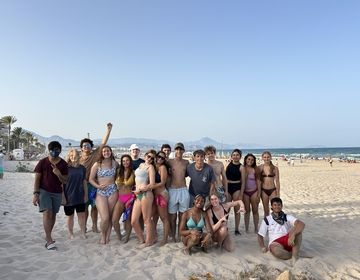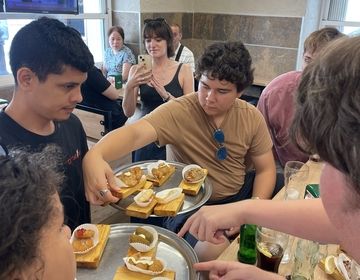The trip to Alicante.
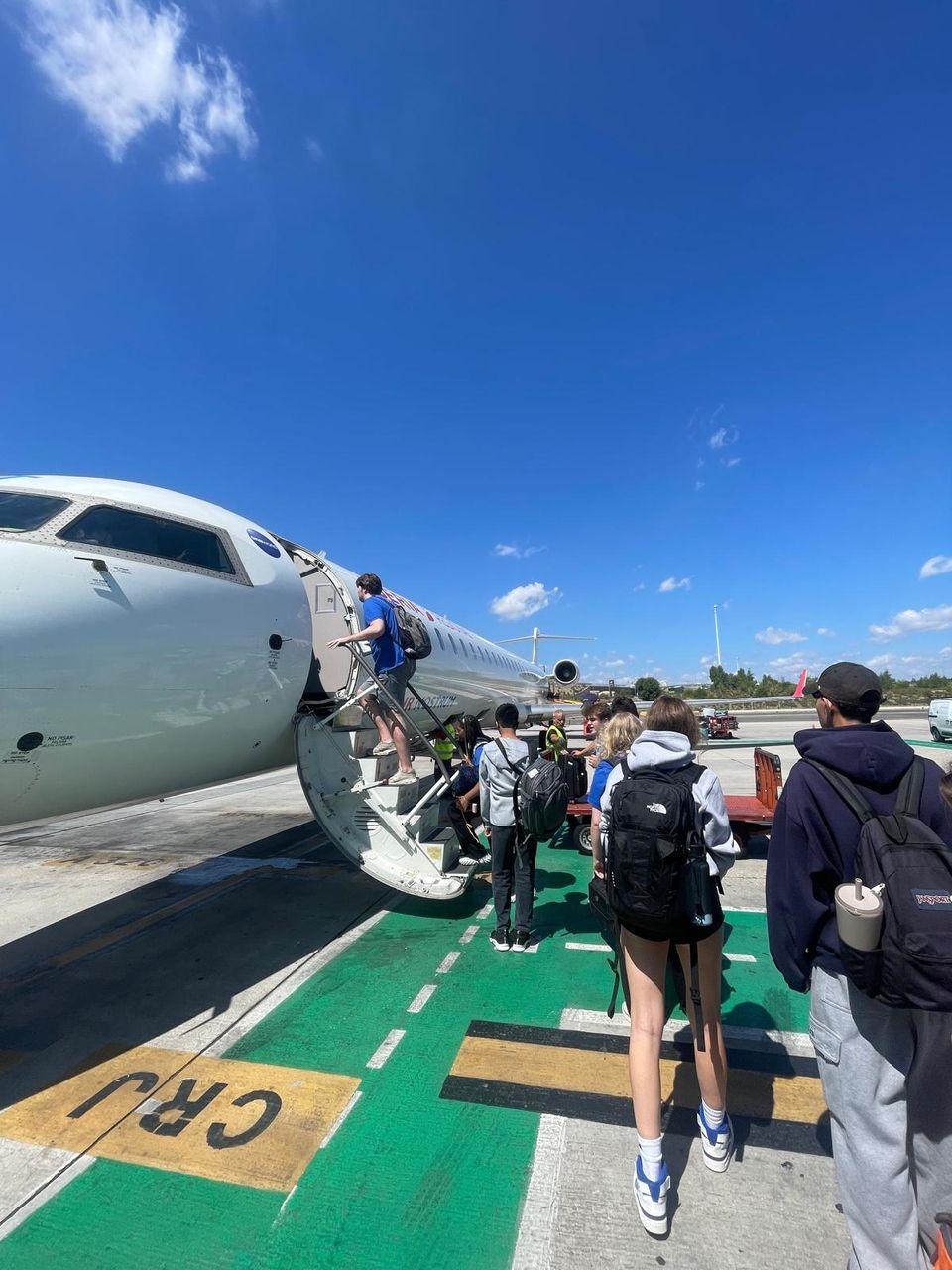
The day started very early, and we were looking for a way to reach our final destination: Alicante, a small port on the coast of Spain that awaited us with all its attractions, its food, its language, and, above all, a family.
Many students who decided to take this adventure were nervous but excited; learning a language is not easy, but deciding to immerse yourself in a place where immersion contact is almost 100% in the language is very risky and, above all, "brave." These twenty-one students decided to pack their bags and come with the conviction of learning Spanish. But the trip had its complexity. Many of the students came from different states; we have students from Seattle, Texas, D.C., Iowa, and many other states who made a stop in Philadelphia, where we had a meeting point to later travel together to Alicante.
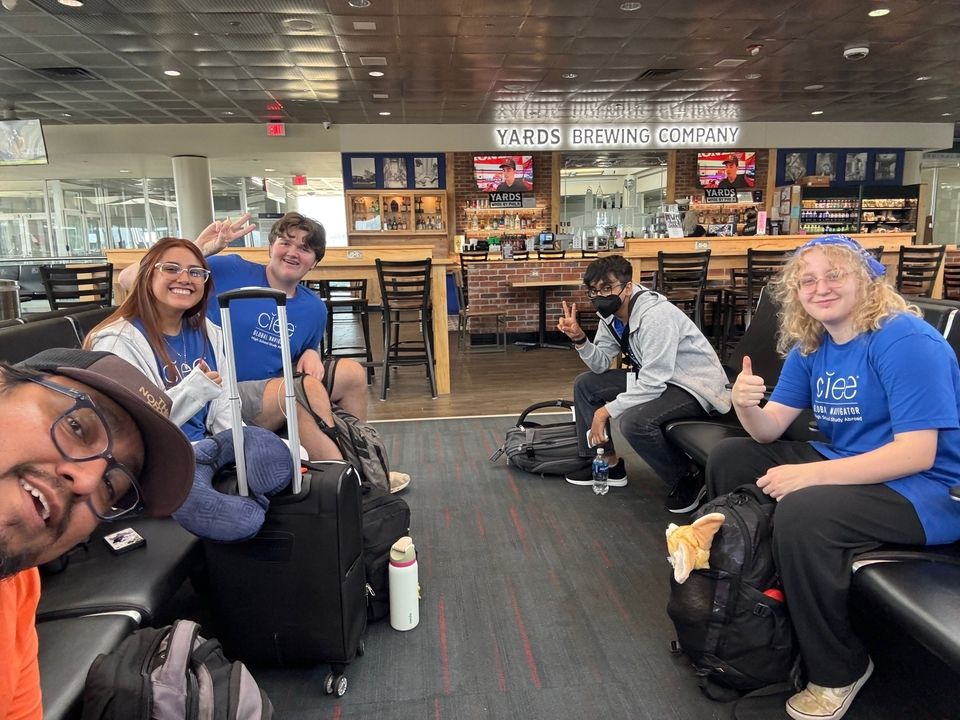
During that period, I had time to talk to several of them and ask them different things. It gave me information about who they are, their main reason for learning the language, and their goal in participating in this program. The main goal was the desire to speak Spanish fluently.
The first plane that most of them took was a small, conventional plane that did not present anything extraordinary. However, the plane we took from Philadelphia to Madrid was massive, with many empty seats, making the students feel more comfortable. The flight was a little over six hours, and with the change of the hours, it seemed like we had been balling all night. Because of their nerves, some could fall asleep, and others spent their time watching movies, listening to music, and talking to each other.
When we arrived in Madrid, we had to go through immigration, to which many of the students asked me what questions the officials checking passports could ask because they wanted to be prepared to answer in Spanish. The Madrid airport is gigantic; it has different floors, a train to travel from one gate to another, and many commercial stores such as restaurants, perfumes, clothing, and much more. We were all excited by the amount of things we could see. After much walking, we arrived at the departure gate, where we met other students and were ready to take the last flight to Alicante. The plane we took in Madrid to get to Alicante was small because the flight was approximately thirty minutes long. We had to walk along the landing strip to get on the plane. Although everyone was tired, you could tell they were excited to see another country. The last flight was the last step the students had to climb to reach their long-awaited destination. And so, in the blink of an eye, we were already in Alicante.
Upon passing the exit doors, the students met their host families waiting for them with signs and a smile that made them feel like they were not arriving in a strange place but rather that they were part of a community and gave them the confidence to feel at home. After that emotional moment, the students began to say goodbye and go to their respective homes to eat, settle in, rest, and be ready for the next day, which featured a new adventure. As adults, we take for granted that traveling is something that we must all do at some point in our lives, but what all these students did on this trip was face the adversities of a language that is not their mother tongue. These students had the courage to conquer their fears, and this trip also prepared them to be successful in their lives.
The fun begins.
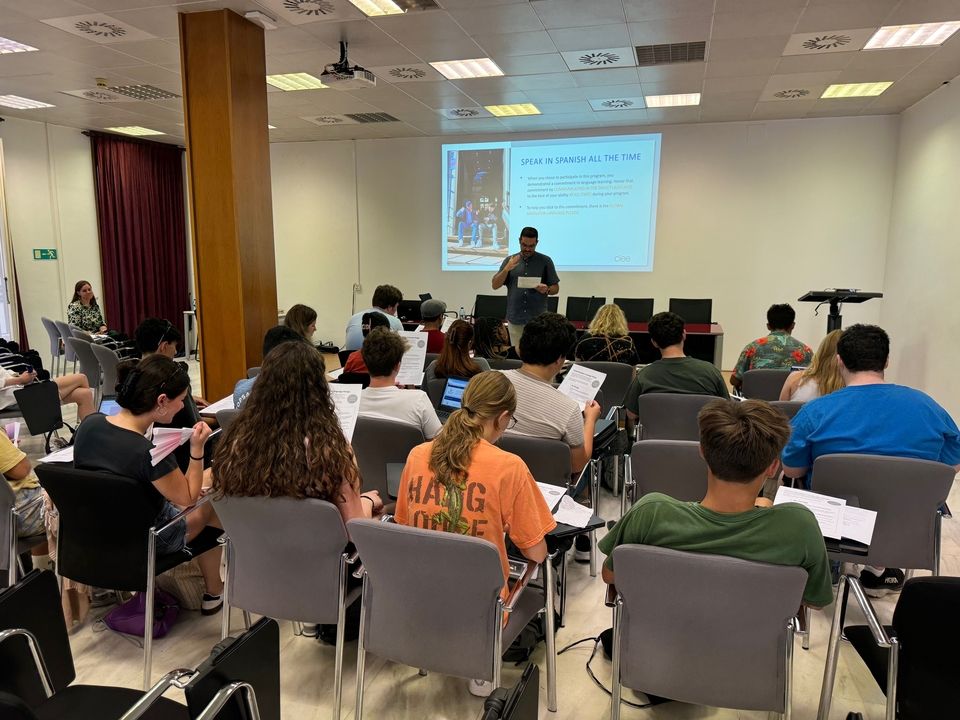
On the first day, we reviewed the student's expectations and the activities and procedures that must be followed in the program.
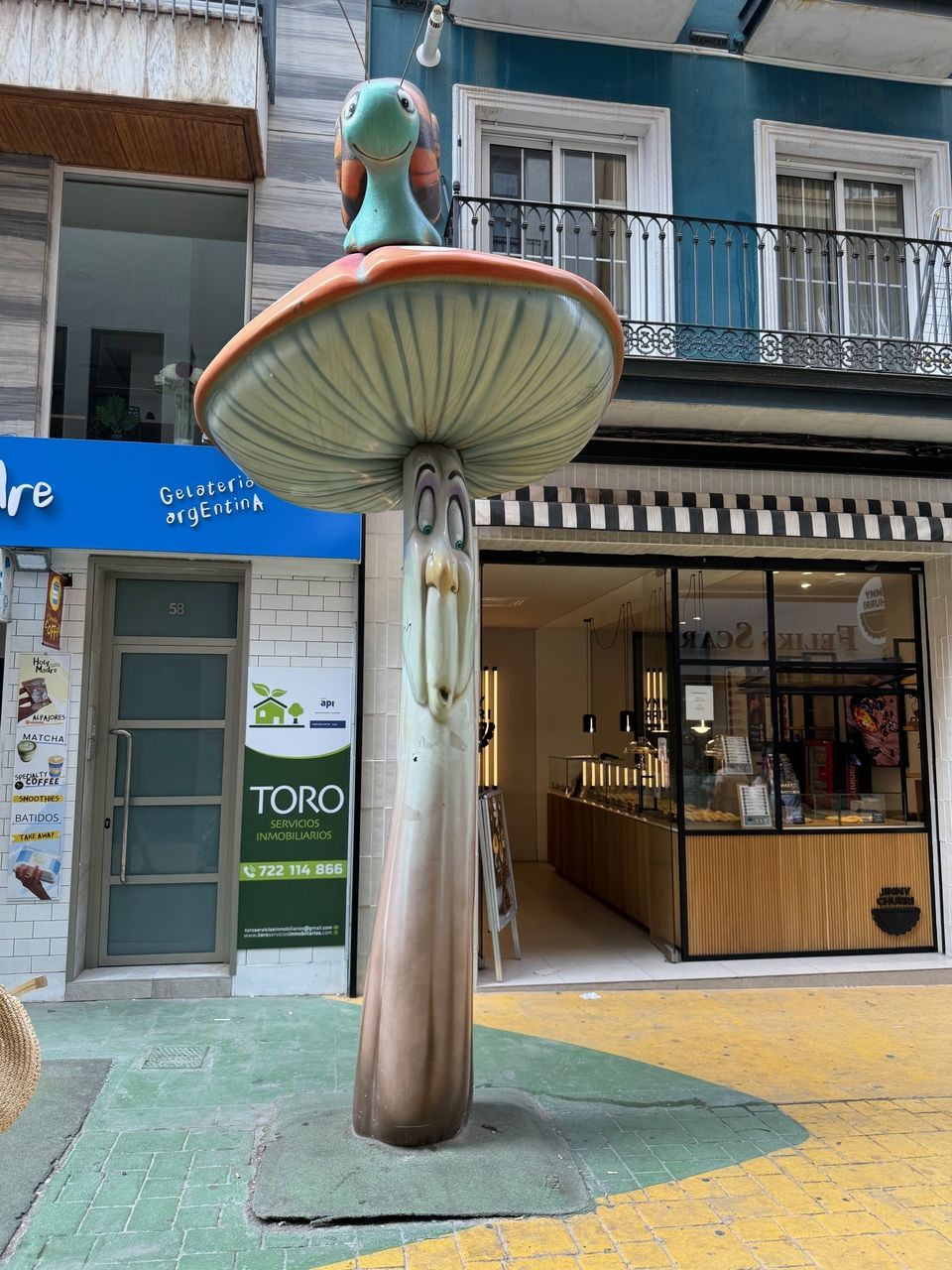
We took a short break on the beach and then continued walking through the city, listening to stories about the churches, monuments, and streets.
Related Posts
Sun, Sand, and Competition: Beach Olympics in Alicante
Our students competed in beach olympics to start wrapping up their final week as Global Navigators (for now)!
El Museo de las Ilusiones
A challenge to your imagination. The Museum of Illusions and Public Transport.
Tapas & Talking: Community Conversations the Tasty Way
Our Global Navigators get the opportunity to connect their Spanish skills from the classroom to real life by speaking with locals in our Community Conversations everyday!
